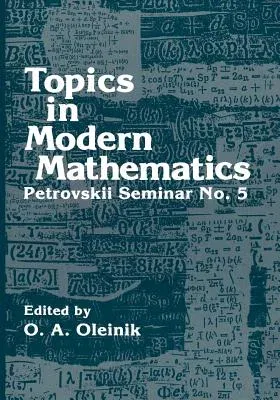Topics in Modern Mathematics: Petrovskii Seminar (Softcover Reprint of the Original 1st 1985)Paperback - Softcover Reprint of the Original 1st 1985, 17 November 2012

Qty
1
Turbo
Ships in 2 - 3 days
In Stock
Free Delivery
Cash on Delivery
15 Days
Free Returns
Secure Checkout
Part of Series
Contemporary Soviet Mathematics
Print Length
342 pages
Language
English
Publisher
Springer
Date Published
17 Nov 2012
ISBN-10
1468416553
ISBN-13
9781468416558
Description
Product Details
Book Edition:
Softcover Reprint of the Original 1st 1985
Book Format:
Paperback
Country of Origin:
NL
Date Published:
17 November 2012
Dimensions:
25.4 x
17.78 x
1.88 cm
ISBN-10:
1468416553
ISBN-13:
9781468416558
Language:
English
Location:
New York, NY
Pages:
342
Publisher:
Weight:
612.35 gm

